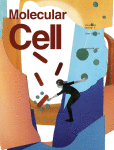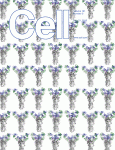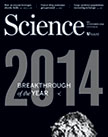 For months, a researcher has wrestled with a journal over the wording of an upcoming retraction notice. It appears that she has lost.
For months, a researcher has wrestled with a journal over the wording of an upcoming retraction notice. It appears that she has lost.
Earlier this week, Cell retracted the paper, despite the protests of first author Shalon Babbitt Ledbetter. When Ledbetter learned the journal was planning to retract the biochemistry paper over image manipulations, but wouldn’t name the culprit in the notice, she shared her concerns on PubPeer. Although a 2015 letter sent to Cell from Saint Louis University identified last author Dorota Skowyra as responsible for multiple manipulations, the journal wasn’t planning to say Skowyra was responsible in the retraction notice. Which would leave all other authors — particularly Ledbetter — under a cloud of suspicion.
Now, Cell Press has finally retracted the paper, along with another paper in Molecular Cell that lists Skowyra as corresponding author. Both notices describe image manipulations that were investigated by Saint Louis University (SLU). Neither identifies who is responsible.
Continue reading Researcher loses battle with Cell over wording of retraction notice







